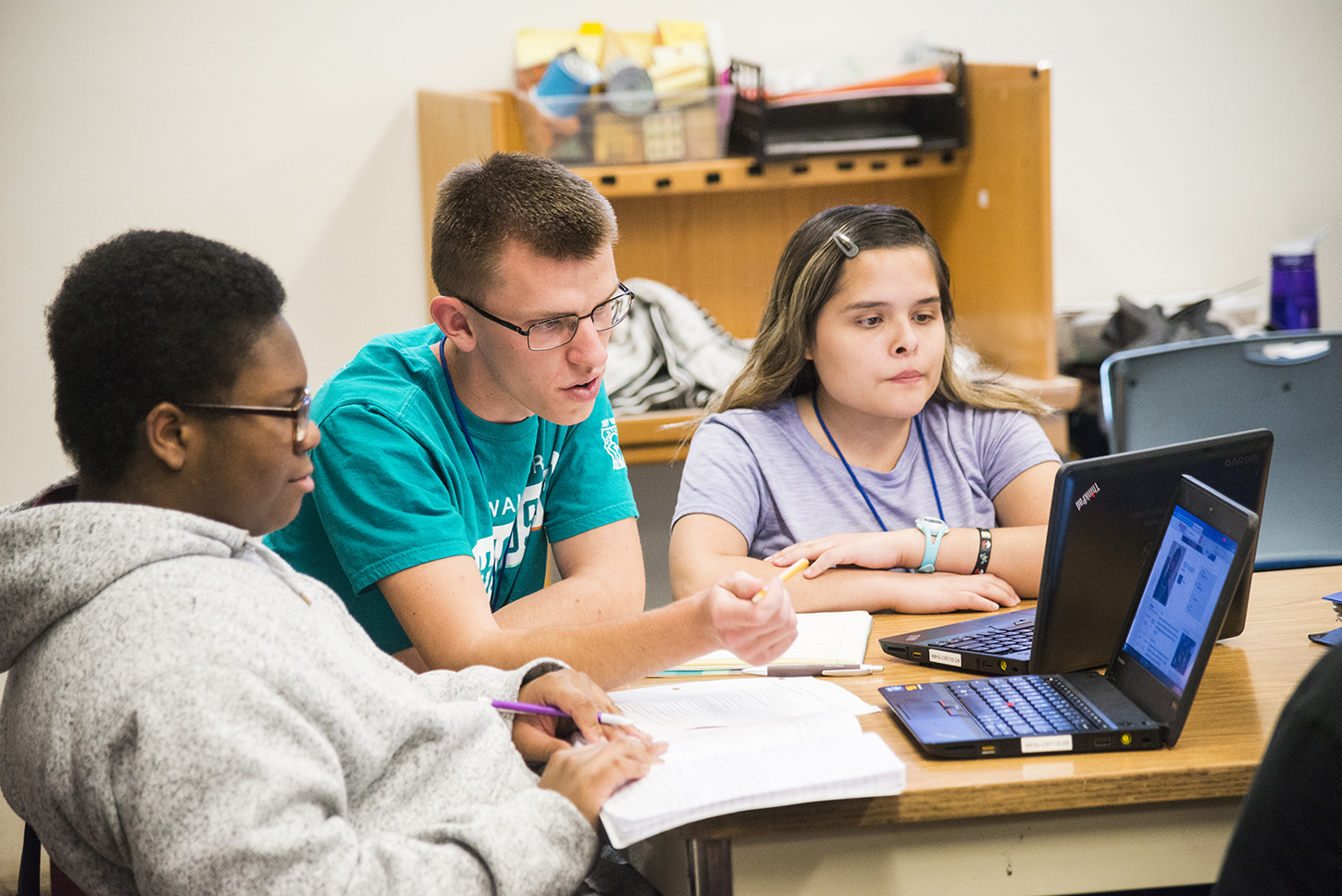December 11, 2018
How to Survive Group Projects
Tips for bringing out your students’ best work (without losing your mind).
Most teachers recognize the value of group work, but it takes a lot of preparation and management to pull off without going insane. What’s the best way to make projects effective and meaningful for everyone involved?
Ultimately, you have to sell the idea up front. You also have to think about everything that could go wrong, and figure out the best way to prevent those pitfalls from happening. Here are a few tips that will allow you and your students to get through (and even enjoy!) group projects:
BEFORE
Share Examples
Make your expectations for the project abundantly clear through quality examples. Go through the process yourself and create at least one example of what an excellent finished project looks like. If you have time, it’s extra-helpful to show students what not-so-great products look like.
Create a Rubric
Along with examples, provide a rubric with clear, relatable language before students begin the project. This is part of setting high expectations, and it makes grading projects that much easier at the end. Plus, putting in the time up front saves you time explaining final scores later.
One fun way to make sure students have actually processed your expectations is for them to take the rubric and reinterpret it on their own terms. For example, maybe they compare the rubric’s different criteria to movies and give each movie a “rating” that reflects its importance.
Allow for Personal Choice
Provide at least a few ways for students to demonstrate their understanding of the topic you’re assessing. Students should have creative options, as well as straightforward ones, that speak to all types of learners. Many teachers offer an option for students to come up with their own project idea, but they should have to convince you of its value before they begin.
It’s also important for students to have at least some choice in whom they work with. Allow them to choose one friend, but then group two pairs who wouldn’t normally work together.
DURING
Encourage Idea-Sharing
During the process of creating projects, have groups share their ideas. Peers listen to each other often more than they listen to you, so use this to your advantage. Recognize creative ideas, and be positive when students are willing to share their approach. It takes courage!
Reserve Class Time
Projects may go better if you have the ability to observe group dynamics, so plan ahead and give plenty of time in class for group work. Make it clear that if time in class is not used well, then it’s up to each group to have a backup plan for finishing their project.
Acknowledge and Manage Conflict
Provide structured reflection opportunities so students can communicate with you and with each other. You don’t want groups getting frustrated without an outlet. You may need to meet individually with groups before or after class if there are big issues, and this is a great way to teach students how to work together in a mature way. After all, some may argue this skill is the most important one they will learn.
AFTER
Reward Hard Work
Recognize top-performing groups so those who put forth the extra work find it worthwhile. You can be creative in how you reward, but be fair to those students who really go above and beyond. This gives other students something to shoot for the next time around if they didn’t do a stellar job.
Host a Museum Walk
Put projects on display around the room, and let peers review each other’s work. Be sure to give students strict guidelines for evaluation, and assign each student one project or more to review. This important step will help them understand the importance of the rubric from a new perspective.
Recognize and Reduce Anxiety
Make “turn-in” day something that students look forward to instead of dreading. Have them reflect and tell you what they liked or didn’t like about the project. Create a social experience so they can connect with their peers. Bring snacks if you’re able to, and remember that students are sometimes anxious about sharing their work. Give a lot of encouragement, especially to the groups who may have struggled throughout the process.
Group projects can be really enjoyable if you have the right outlook. Remember that if you provide the right structure and support, students will be able to demonstrate more effectively what they know. And, though it may seem daunting at first, it’s worth it: a positive experience of working together and creating something new will benefit your students far beyond the scope of a single project.











